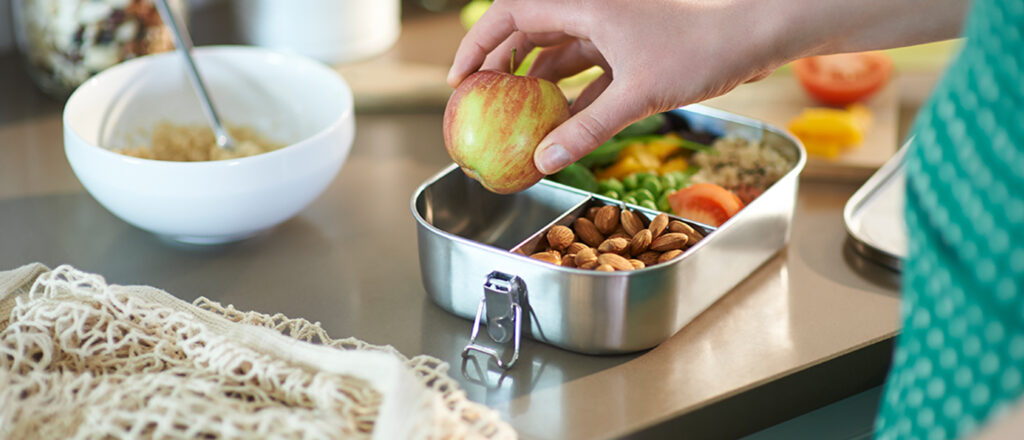
Back-To-School Nutrition Basics
As kids head back to school, here’s an important lesson for parents. Don’t overlook the role that nutrition plays in learning. Kids who eat healthy are more likely to have the energy, stamina, and self-esteem to help them excel academically and crush their favorite school activities.
Start the day with breakfast.
Breakfast is often called the most important meal of the day. To encourage your kids to eat a healthy breakfast, sit down and eat with them. Breakfasting together can prepare your whole family to meet the challenges of the day ahead.
A balanced breakfast doesn’t have to be complicated. A bowl of whole grain cereal with low-fat milk and a piece of fruit is an easy way to go. Just be sure to choose a cereal with less than 10 grams of sugar per serving.
Let’s do lunch.
When children skip lunch, they may be more likely to have trouble concentrating in the classroom, may lack energy for sports, and may tend to overeat low-nutrient, after-school snacks.
Every lunch should include protein, a grain, at least one fruit and one vegetable, a calcium-rich food or beverage (if not buying milk at school), and perhaps a small sweet or additional snack item.
After-school snack attack.
Fill your fridge and pantry with nutrient-rich snacks like raw veggies, whole fruits, crackers, string cheese, popcorn, or cereal. This way your kids will be less likely to reach for empty-calorie foods like sweets and chips.
And did you know that kids often mistake hunger for thirst? If it’s hot out or your child is super active, serve a glass of water or milk first. Then if they’re still hungry, offer a snack.
Source: Academy of Nutrition and Dietetics
The connection between diet and grades
Many studies show that kids who eat well do well in school – which is even more reason to fuel your kids properly for each and every school day.
Here’s a look at one such study. Data from the 2015 National Youth Risk Behavior Survey (YRBS) shows that students with higher grades are more likely to practice healthy eating behaviors than students with lower grades.
Students with higher grades are more likely to:
- Eat breakfast on all seven days
- Eat fruit or drink 100% fruit juice one or more times per day
- Eat vegetables one or more times per day
- Drink one or more glasses per day of milk
- Not drink a can, bottle, or glass of soda or pop
Source: Centers for Disease Control and Prevention
